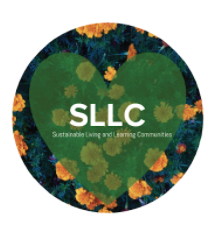Green Fellowships fund projects exploring student-led advancement of social justice, sustainable technology, and environmental sustainability at UC Davis.
In 2018, grateful UC Davis alumni, faculty and community members collaborated and donated money to create the Green Fellowship, which supports students advancing social justice and environmental sustainability. These donors are also supporting the holistic advancement of the Sustainable Living and Learning Communities (SLLC).
Green Fellows will be selected annually to complete a project that is hosted and supported by one of the SLLC communities and also benefits the SLLC more broadly. Each fellowship includes $4000 in wages for the student's effort and $1,500 for supplies or other project costs (including mentorship), to be paid to the hosting program. The Green Fellowship is open to all undergraduate students in all majors who have at least a 2.5 GPA. Graduate student proposals will be considered, but undergraduate students will be given priority.
Project Criteria:
- The proposed project should be designed to positively impact both environmental sustainability and social justice. The project should uphold the SLLC values of experiential learning, community, and sustainability. So think about what you and others might learn from the project, who will you be working alongside and which communities will benefit, and how will the project sustain our environment.
- The proposed project should benefit the goals and vision of the SLLC and be in clear relationship to its physical or program resources and needs. Proposal should address implications of the project for both the short and the long term. That is the year of the project work as well as the 2-10 years after the fellowship year.
- Green Fellowship projects are developed collaboratively between a student and one or more SLLC programs. The project will designate one SLLC program and an individual within that program as a host-mentor to the work. The proposal itself should be submitted by the student but close collaboration with the host-mentor is encouraged for development and submission of a well-articulated and professional proposal. Host program should also submit an accompanying letter of support signed by the mentor. SLLC programs are the Student Farm, the Domes and Tri-Coops, Project Compost, the Feminist Research Institute, ASUCD Experimental Community gardens, Aggies Grow Veggies and the Design-Lab. For more information on the SLLC and its long term plan see our master vision plan. This criteria is important because we understand that learning opportunities are sustained when fellows work in direct collaboration with SLLC space and programs.
- The proposed project must relate to UC’s Land Grant mission of serving the broader community with relevant research and information. Part of the land grant mission includes the goal of extending useful and relevant information to users and the public. The selection committee will consider if the proposed project includes aspects designed to be interesting to, useful for, and easily understood by non academic audiences and those from traditionally underrepresented communities to improve users’ daily lives. Examples of this might include educational presentations, materials or practical guides.
- The project proposal should achieve its goals through an interdisciplinary approach. For example, a project could focus on waste management through composting and manifest into a work of art; or focus on the history of labor in California and manifest into new training or internship opportunities for SLLC gardeners and farmers.
Annual Timeline:
- March 11th -- Proposal submissions open (APPLY HERE)
April 14thNEW DEADLINE APRIL 28TH -- Applications due by midnight- May -- Project proposal review and selection
- Late May -- 2024-25 Green Fellows announced
Application Components:
Students will apply by submitting the following through our online application:
- A project proposal which includes the following details:
- Project summary and description, including which SLLC community is hosting your project proposal and how your project addresses the criteria outlined above
- Project deliverables (tangible outcomes) and required resources
- Timeline and budget
- A letter of collaboration and support from the SLLC community program that will host and mentor the fellowship project.
- Answers to supplemental questions about the student applicant
- (Optional) Letter of support for the proposal from a faculty member or other SLLC affiliates
